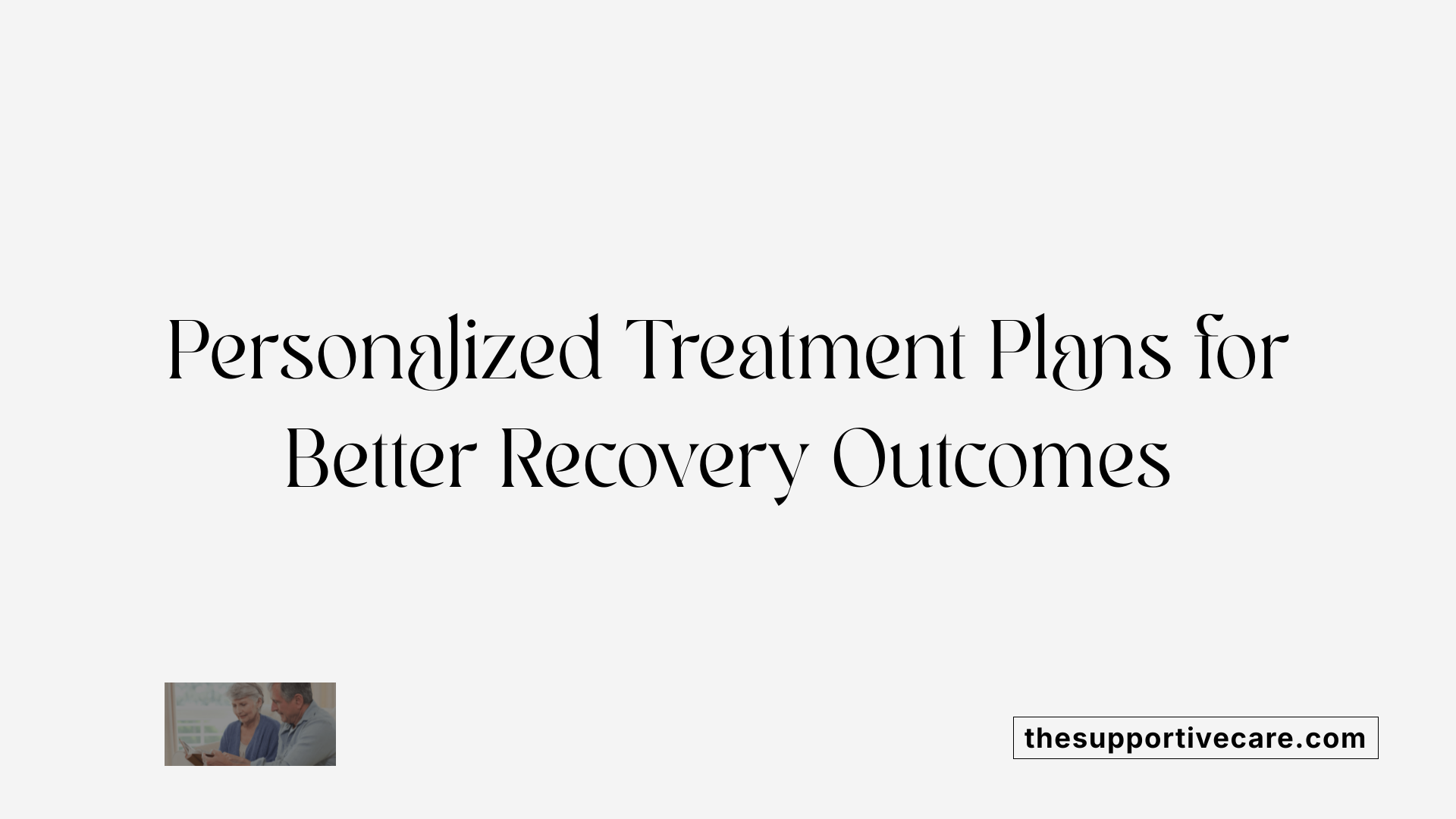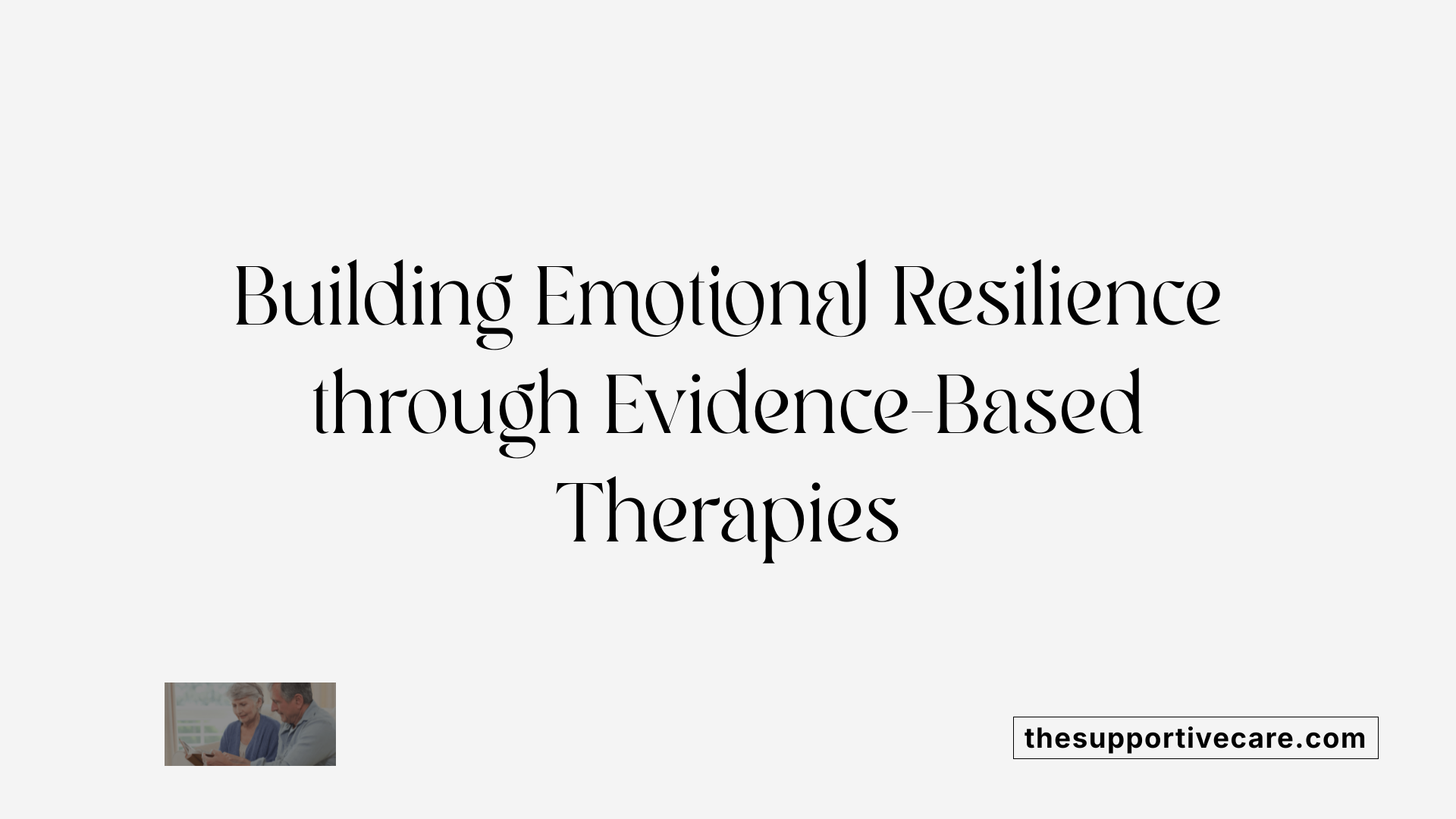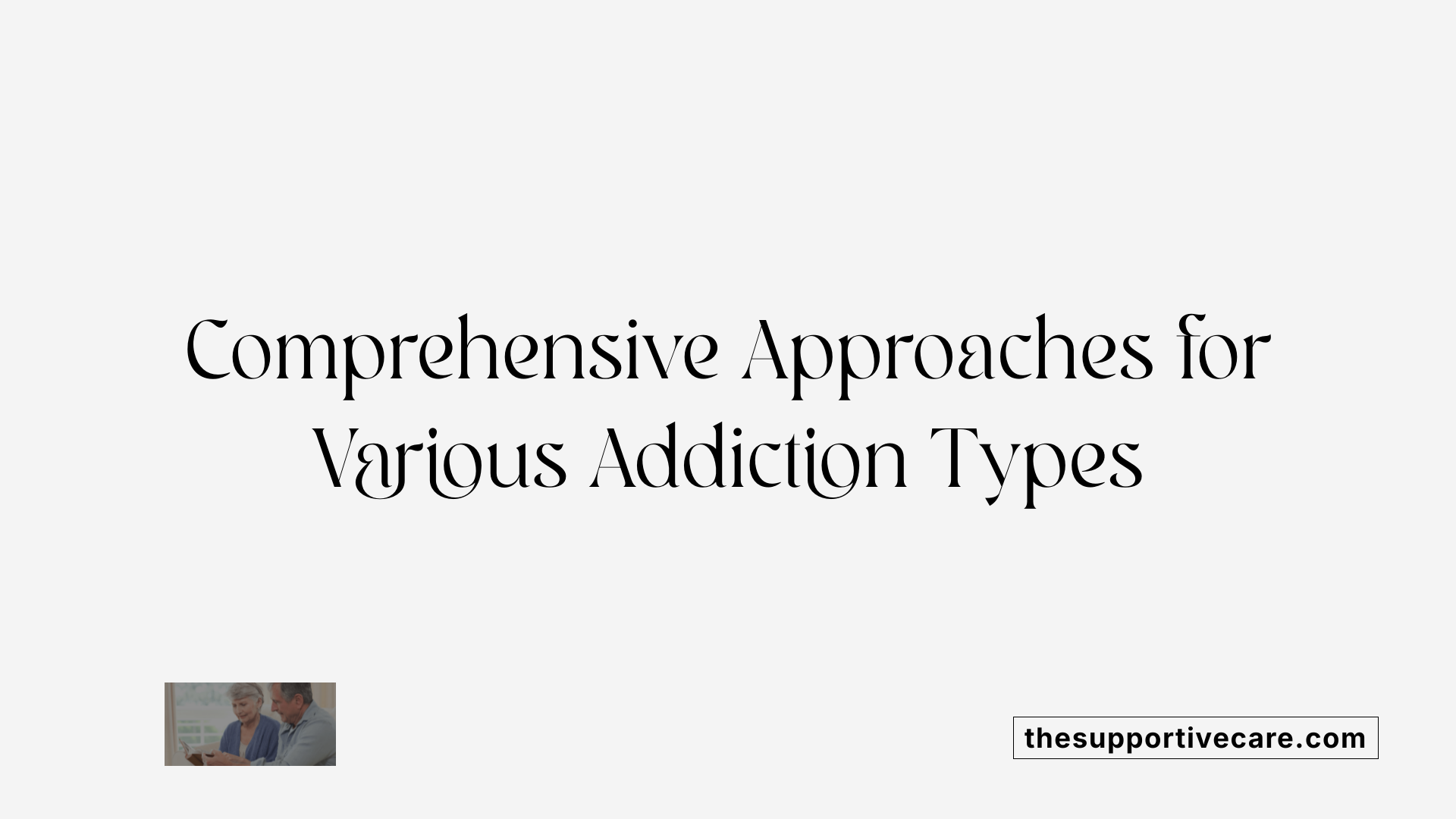Understanding the Complexity of Co-Occurring Disorders
Co-occurring disorders represent the simultaneous presence of substance use disorders alongside mental health conditions, impacting millions and creating complex challenges for treatment providers. Developing customized behavioral health plans is critical to addressing the intertwined nature of these disorders. This article explores comprehensive treatment services, integrated care approaches, and effective strategies for individualized therapy that improve recovery outcomes for patients navigating these dual challenges.
Comprehensive Treatment Services for Substance Abuse and Co-Occurring Conditions

What are the comprehensive treatment services available for substance abuse?
Comprehensive treatment for substance abuse integrates multiple facets of care to address both addiction and any co-occurring mental health conditions. This multidisciplinary approach begins with medical detoxification to safely manage withdrawal symptoms.
Medication-assisted treatment (MAT) is critical, particularly for opioid use disorders, using medications such as methadone, buprenorphine, and naltrexone to reduce cravings and prevent relapse. Alongside MAT, behavioral therapies like Cognitive Behavioral Therapy (CBT) and Motivational Interviewing provide clients with tools to identify triggers, modify behaviors, and strengthen motivation for sustained recovery.
Specialized programs tailor care to meet diverse needs—from adolescents and veterans to those battling infectious diseases such as HIV/AIDS. These programs also incorporate harm reduction strategies including overdose prevention, syringe exchange services, fentanyl testing, and supervised injection sites to minimize health risks and support safer practices.
Counseling services form a core part of treatment. These include individual and group counseling, family therapy, crisis intervention, and co-occurring mental health counseling to address the complex interplay between addiction and psychiatric disorders.
Support infrastructure extends beyond direct treatment. Peer engagement initiatives, educational resources, and community outreach help reduce stigma, promote awareness, and encourage individuals to seek and maintain recovery.
Together, these comprehensive services ensure a well-rounded and personalized treatment experience, increasing recovery success and improving quality of life for individuals with substance use and co-occurring disorders.
Addressing Mental Health Within Addiction Treatment Programs

How are mental health issues addressed within comprehensive addiction treatment programs?
Mental health issues are addressed in addiction treatment through integrated care approaches that treat both substance use disorders and mental health conditions at the same time. Programs use a mix of behavioral therapies such as Cognitive Behavioral Therapy (CBT), Dialectical Behavior Therapy (DBT), Motivational Interviewing (MI), and trauma-informed therapies. These help individuals build coping strategies, manage triggers, and improve emotional regulation.
Medication management plays a significant role. Medications such as antidepressants, mood stabilizers, antipsychotics, and medication-assisted treatments like buprenorphine or methadone help manage mental health symptoms and reduce substance cravings. Care teams continuously monitor and adjust medications to stabilize moods and support recovery.
Support services are essential for stabilization and long-term recovery. These include crisis intervention, peer support groups, family counseling, and recovery housing. They provide emotional backing and practical assistance during vulnerable phases.
Treatment coordination ensures continuous care by linking patients with multidisciplinary teams, including psychiatrists, therapists, addiction specialists, and case managers. This coordinated approach guarantees individualized treatment plans based on comprehensive assessments, with ongoing follow-ups to track progress and adjust therapies.
Through this integration of therapies, medication, and supportive services, addiction treatment programs can effectively address the intertwined challenges of mental illness and substance use disorders, improving recovery outcomes and quality of life.
Diverse Addiction Types and Tailored Therapeutic Interventions

What types of addiction can comprehensive treatment services help with?
Comprehensive treatment services address a broad spectrum of addictions, including substance use disorders like alcohol, opioids, and other illicit or prescription drugs. Behavioral addictions such as gambling are also treated within these programs, reflecting the diverse challenges individuals face. Treatment plans are designed to meet specific needs, adapting to the severity and complexity of each disorder.
What levels of care are available for addiction treatment?
These services span various levels of care, from medically supervised detoxification and inpatient or residential programs to outpatient treatments like Partial Hospitalization Programs (PHP) and Intensive Outpatient Programs (IOP). This range allows patients to receive the right intensity of care—from 24/7 support in residential settings to flexible outpatient sessions—facilitating smoother transitions through recovery stages.
Which therapies and interventions are commonly used?
Treatment integrates pharmacotherapy, such as medication-assisted treatment (MAT), with evidence-based psychosocial therapies including Cognitive Behavioral Therapy (CBT), Dialectical Behavioral Therapy (DBT), and Motivational Interviewing (MI). These approaches aim to reduce substance use, manage cravings, and address underlying mental health conditions. Support structures like self-help groups further enhance recovery by fostering community and shared experience.
What are the main goals of addiction treatment?
The core objectives focus on reducing or eliminating addictive behaviors, improving psychological and physical health, and preventing relapse. Personalized and continuous care ensures that treatment evolves with the client’s progress, encouraging long-term stability and well-being.
How is personalization incorporated into addiction treatment?
Flexibility is central as individualized assessments guide treatment planning. Factors such as co-occurring disorders, age, lifestyle, and personal preferences shape the therapeutic approach, optimizing engagement and recovery outcomes. This personalization enhances effectiveness and comfort for each patient, supporting sustainable healing.
How effective are evidence-based therapies?
Research and patient outcomes consistently highlight that evidence-based therapies lead to improved recovery rates, decreased substance use, and better mental health management. Combining medication, behavioral therapies, and holistic methods offers the most comprehensive support, addressing the multifaceted nature of addiction.
| Aspect | Description | Impact on Recovery |
|---|---|---|
| Addiction Types | Substance use disorders (alcohol, opioids, drugs) and behavioral addictions (gambling) | Broad treatment applicability |
| Levels of Care | Detox, inpatient, outpatient, IOP, PHP | Flexible care intensity tailored to patient needs |
| Therapies & Interventions | Pharmacotherapy (MAT), CBT, DBT, MI, psychosocial, support groups | Reduce use, manage symptoms, enhance coping |
| Treatment Goals | Eliminate addiction behaviors, prevent relapse, improve function | Promote long-term recovery and stability |
| Personalization | Individualized plans based on assessments and preferences | Improved engagement and outcomes |
| Evidence-based Effectiveness | Supported by research and clinical outcomes | Higher success rates and quality of life |
Developing Individualized Behavioral Health Plans for Dual Diagnosis
Comprehensive evaluations and dual diagnosis identification
Developing an effective behavioral health plan for individuals with co-occurring disorders begins with thorough evaluations. These assessments identify both mental health conditions and substance use disorders, ensuring no aspect is overlooked. Dual diagnosis identification is critical as it tailors treatment to the unique interplay between these conditions.
Collaborative goal setting and treatment planning
Treatment success increases when patients collaborate with clinicians to set personalized recovery goals. This partnership creates customized plans that adjust therapy types, intensity, and medication based on individual needs and progress.
Integration of evidence-based therapies including CBT, DBT, MI, trauma-informed care
Evidence-based therapies are central to personalized plans. Cognitive Behavioral Therapy (CBT), Dialectical Behavior Therapy (DBT), Motivational Interviewing (MI), and trauma-informed care are integrated approaches that address both addiction and mental health symptoms simultaneously.
Medication management protocols
Medication management is carefully coordinated to stabilize mood, reduce cravings, and treat psychiatric symptoms. This includes antidepressants, mood stabilizers, antipsychotics, and anti-craving medications, all closely monitored and adjusted by healthcare professionals.
Incorporation of holistic therapies and experiential approaches
Complementing traditional therapies, holistic methods like mindfulness meditation, yoga, acupuncture, nutritional counseling, and experiential therapies support emotional regulation, stress reduction, and mind-body-spirit balance to promote sustainable healing.
Ongoing monitoring and treatment plan adjustments
Regular monitoring allows clinicians to track patient progress and modify treatment plans accordingly. This dynamic process ensures that therapy intensity and approaches evolve with the patient's recovery stage, maintaining efficacy over time.
Enhancing Recovery Through Multidisciplinary Teams and Family Involvement
What roles do interdisciplinary teams play in treating co-occurring disorders?
Effective treatment of co-occurring mental health and substance use disorders relies on interdisciplinary teams composed of psychiatrists, psychologists, nurse practitioners, therapists, addiction specialists, and support staff. These professionals collaborate to develop personalized treatment plans addressing each patient’s unique mental, emotional, and physical health needs. Such comprehensive care facilitates accurate diagnosis, medication management, integrated therapy, and ongoing progress evaluations.
How are age-specific services tailored in treatment programs?
Treatment services adapt to the needs of different age groups—children and adolescents receive early intervention coupled with on-site educational resources. Adults benefit from crisis stabilization, skill-building, and long-term recovery strategies. Seniors access medication management, physical health support, and emotional counseling to address challenges related to aging and loss, ensuring care is developmentally appropriate and individualized.
Why is family participation and education important?
Involving family members in treatment enhances communication, provides emotional support, and reduces relapse risk. Family education empowers loved ones with knowledge about dual diagnosis, promoting resilience and cooperation throughout recovery. This collaborative approach strengthens the client’s support network and contributes positively to sustained wellness.
What roles do support groups and peer counseling play?
Support groups and peer counseling foster shared experiences, build coping skills, and encourage community connection, which are particularly beneficial for those managing co-occurring disorders. These resources complement formal treatment by providing ongoing moral support and practical advice.
What benefits do residential rehab programs and continuum of care offer?
Residential rehab provides 24/7 medical and emotional support, structured routines, and removal from triggers, ideal for complex cases. It incorporates integrated therapy, medication management, and holistic approaches within a supportive environment. Continuum of care includes outpatient programs like Partial Hospitalization and Intensive Outpatient, allowing seamless transitions as patients progress.
How do aftercare and relapse prevention plans support long-term recovery?
Personalized aftercare plans feature outpatient therapy, ongoing medication management, relapse prevention strategies, family counseling, and participation in support groups. These components maintain stability, monitor warning signs, and reinforce coping skills.
| Aspect | Description | Benefit |
|---|---|---|
| Interdisciplinary Teams | Psychiatrists, therapists, addiction specialists | Comprehensive, personalized care |
| Age-Specific Services | Tailored to children, adults, seniors | Developmentally appropriate treatment |
| Family Involvement | Education and participation | Improved communication and relapse prevention |
| Support Groups & Peer Counseling | Community-based emotional and practical support | Shared experiences and coping strategies |
| Residential Rehab & Continuum of Care | Structured, integrated treatment with smooth transitions | Intensive support and adaptable recovery steps |
| Aftercare & Relapse Prevention | Ongoing therapy and support | Sustained recovery and early intervention |
Towards Improved Outcomes with Customized Dual Diagnosis Care
Addressing co-occurring disorders through customized behavioral health plans offers the best path forward in managing the complex interplay between addiction and mental health. Comprehensive, integrated treatment services that combine medical, psychological, and holistic approaches—tailored to individual needs and supported by multidisciplinary teams—significantly enhance recovery success. Ongoing collaboration, family engagement, and aftercare support sustain long-term wellness and reduce relapse risks. As research and treatment innovations evolve, the emphasis on personalized dual diagnosis care remains a cornerstone of effective behavioral health interventions, ultimately improving quality of life for countless individuals facing these intertwined challenges.
References
- Co-Occurring Mental Health and Substance Use Disorders
- Screening and Treatment of Co-Occurring Disorders
- Behavioral Health Group (BHG) | Outpatient Opioid Addiction ...
- Mental health & substance abuse coverage
- Behavioral Health
- Dual Diagnosis Treatment
- Which residential rehab offers individualized therapy plans ...
- Levels of Care for Addiction Treatment


































































































